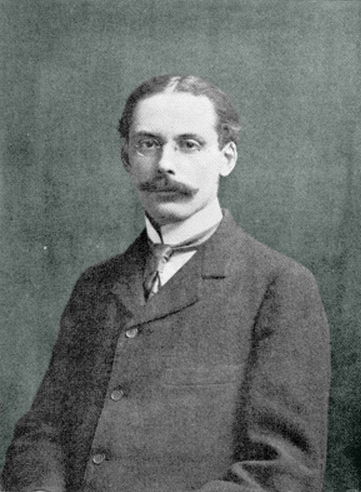
In this letter, American poet Edwin Arlington Robinson speaks of freeing himself from academia, as well as the complications of his friendship with Carroll Brent Chilton, or the “Boy,” as Edith Brower refers to him. Brower was an ardent fan of Robinson’s and the two were in constant correspondence. She initially wrote to him in order to praise his first, privately printed, collection of poems, The Torrent and the Night Before. Passionate about literature and twenty-one years his senior, Edith Brower became a trustworthy literary companion with whom Robinson shared all of his critical opinions and insights. He also shared with her many of his frustrations, feeling constricted by his job as secretary for Harvard’s president (where he attended school for two years). Determined to focus on his writing, Robinson escaped to New York and became an inspector for the New York City subway system. While there, he completed his second volume of poetry, Children of the Night, which Brower reviewed positively in 1897.
14 Oxford Street
6 August 1899
Dear Friend:
I did not curl up my toes because I had the privilege of lying in bed but because the incubus of that College Office was not hanging over me any more. I told them that I was in the wrong place and [they] agreed with me; they agreed with me so heartily, in fact, that I have not been there for over a month. There is no trouble or ill-feeling on either side, so you need not begin to conjure up shadows. I expect to go to New York this fall and stay through the winter. There is no other place where I can feel easy or half comfortable. I shall eat some queer things and very likely live in a queer place, but I must have the town. Probably I shall not see very much of the “Boy,” as you call him, though I shall by no means let him go. He is a good fellow and we have an antipodean friendliness for each other which I hope will last. No, he said nothing about disposing of you. What is he going to do with you? And when are you going into exile?
I don’t remember just what kind of stuff I wrote to Marjorie Hanson, but considering the character of the child you must give me a good deal of credit for writing anything at all. As long as she giggled and her mother was not offended, I suppose it was all right. I have a great interest in that “young one,” and hope you will let me know what she makes of herself. Also, tell me about your own schemes, as far as you care to, and believe me
Always sincerely yours,
E. A. Robinson
This room is like an oven tonight — or I would not be so generous in the matter of margins.
Do not misinterpret my statement about not seeing much of Chilton. All I meant was that I shall not like seeing a great deal of anyone who knows anything about me. This feeling is rapidly winning for me a reputation for conceit, incivility, indifference and the Lord knows what other things that are as far from the truth as Provincetown is from Paradise, but as the boy said, “I can’t help it.” The “Boy” would say the same thing if he were in my place and he were “me.” As it is, he is beginning to show signs of pity — which is worse than prussic acid. I am not quite through with the game yet.
E.A.R.
From Edwin Arlington Robinson’s letters to Edith Brower. Edited by Richard Cary. Cambridge: Belknap Press of Harvard University Press, 1968. pp 99-100.
FURTHER READING
Read an article about Robert Browning, whose dramatic monologues significantly influenced Robinson’s poetic portraits.
Read Robinson’s poem “Dear Friends,” which was written with Edith Brower in mind.


